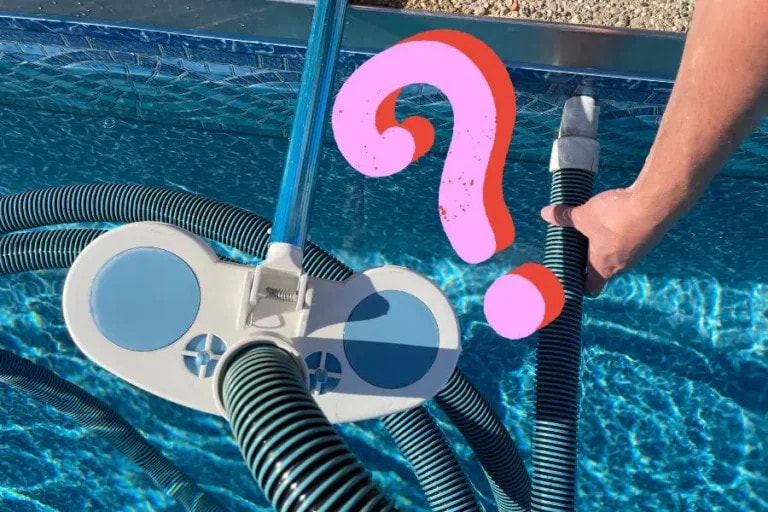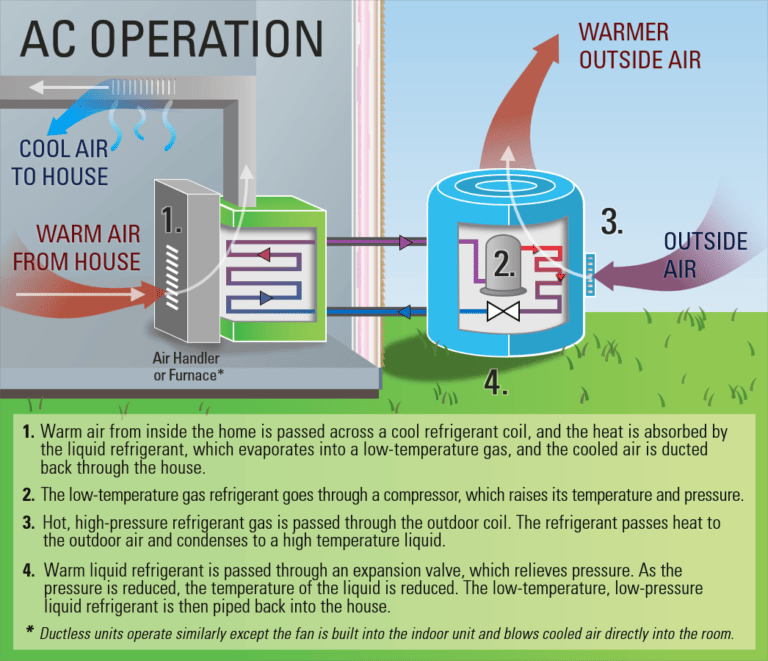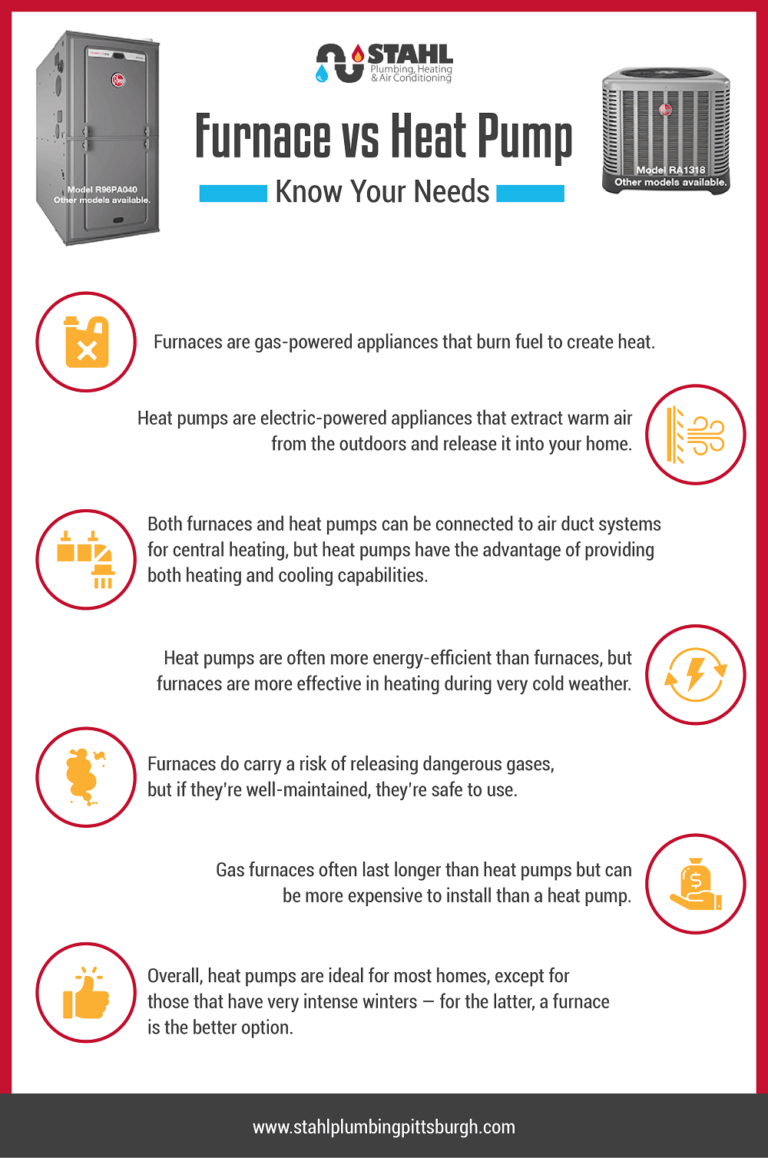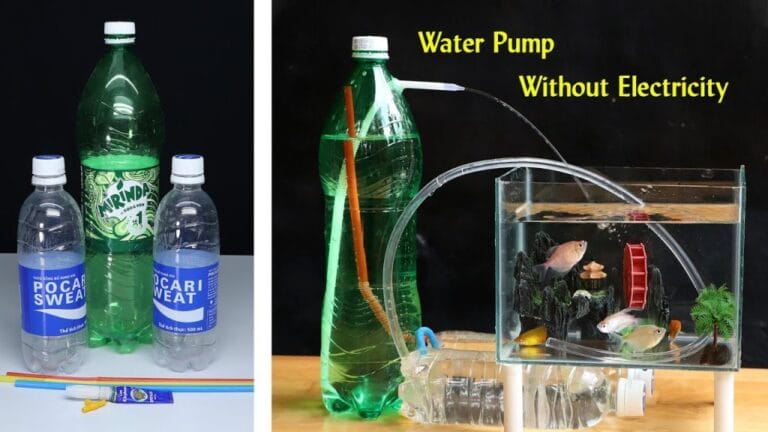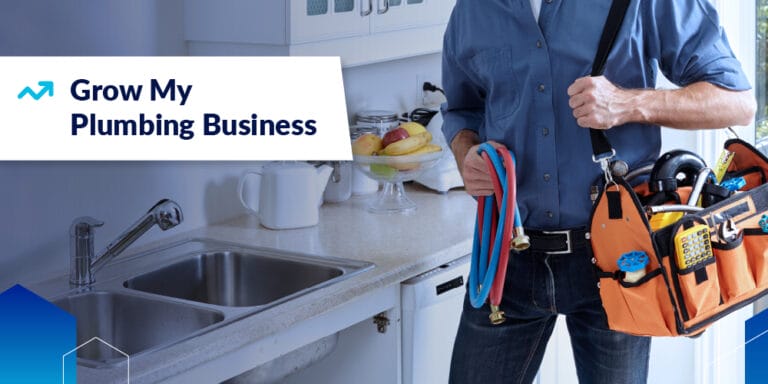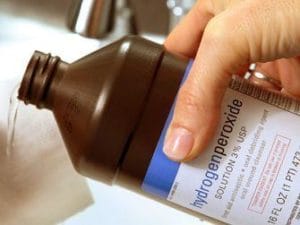
Have you ever wondered about the effects of hydrogen peroxide on your plumbing? Well, you’re in the right place! In this article, we’ll explore the question, “Does hydrogen peroxide damage plumbing?” And guess what? The answer might surprise you. So, let’s dive in and find out what happens when hydrogen peroxide meets your pipes!
Hydrogen peroxide is a common household staple often used for cleaning and disinfecting. But what happens when it comes into contact with your plumbing system? Can it cause any damage or clogs? We’ll uncover the truth and give you all the facts you need to know.
So, whether you’ve accidentally spilled some hydrogen peroxide down the drain or you’re considering using it as a cleaning solution, stay tuned to discover how it interacts with your plumbing. Let’s separate the facts from the myths, shall we? Don’t worry, we’ve got you covered!
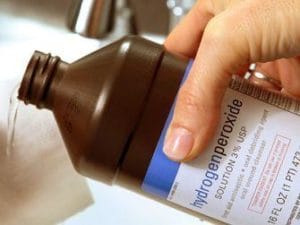
Does Hydrogen Peroxide Damage Plumbing? The Truth Revealed
When it comes to household solutions, hydrogen peroxide is often seen as a miracle substance. It can disinfect wounds, remove stains, and whiten teeth.
But what about plumbing? Many people are skeptical about using hydrogen peroxide in their pipes, fearing that it could cause damage.
In this article, we will dive deep into the topic to determine whether hydrogen peroxide is a friend or foe to your plumbing system.
The Composition of Hydrogen Peroxide
Hydrogen peroxide is a chemical compound composed of two hydrogen atoms and two oxygen atoms (H2O2). It is a colorless and odorless liquid that has powerful oxidizing properties.
When exposed to organic materials, hydrogen peroxide breaks down into water (H2O) and oxygen (O2), making it an effective cleaning and disinfecting agent. This process of decomposition is what leads many to wonder if it could cause damage to plumbing systems.
Fortunately, the answer is no. Hydrogen peroxide does not damage plumbing on its own. In fact, it is often used to clean and disinfect pipes. However, there are a few factors to consider.
Compatibility with Different Plumbing Materials
While hydrogen peroxide is generally safe for most plumbing materials, it is essential to consider the specific materials used in your plumbing system.
Different materials may react differently to hydrogen peroxide exposure. Here is a breakdown of the compatibility of hydrogen peroxide with common plumbing materials:
- Copper: Hydrogen peroxide is safe for copper pipes. In fact, it can help remove mineral deposits and disinfect the pipes.
- PVC and CPVC: These plastic pipes are also compatible with hydrogen peroxide. However, it’s crucial to check the manufacturer’s recommendations and avoid using high concentrations of hydrogen peroxide.
- Galvanized Steel: Hydrogen peroxide can accelerate the corrosion of galvanized steel pipes. It’s best to avoid using it in these pipes.
Tips for Using Hydrogen Peroxide in Plumbing
If you decide to use hydrogen peroxide in your plumbing maintenance routine, here are a few tips to ensure its safe and effective use:
- Dilute appropriately: Use a diluted solution of hydrogen peroxide to avoid any potential damage. A 3% concentration is generally safe for most applications.
- Check manufacturer guidelines: Always refer to the manufacturer’s recommendations for using cleaning agents in your specific plumbing materials.
- Flush pipes thoroughly: After using hydrogen peroxide, make sure to flush the pipes with water to remove any remaining residue.
Benefits of Using Hydrogen Peroxide in Plumbing
Despite the potential concerns with compatibility, there are several benefits of using hydrogen peroxide in your plumbing system:
- Disinfection: Hydrogen peroxide is an effective disinfectant that can help eliminate harmful bacteria and organisms in your pipes.
- Prevent clogs: Regular use of hydrogen peroxide can help prevent the buildup of organic matter and keep your pipes clear.
- Natural and eco-friendly: Unlike harsh chemical cleaners, hydrogen peroxide is a natural and eco-friendly option for maintaining your plumbing.
The Bottom Line
In conclusion, hydrogen peroxide is generally safe for plumbing systems when used correctly and in appropriate concentrations. It can be an effective cleaning and disinfecting agent, especially for copper and plastic pipes.
However, it’s crucial to consider the compatibility of hydrogen peroxide with your specific plumbing materials. Always follow manufacturer recommendations and exercise caution when using any cleaning agents in your plumbing system.
With the right approach, hydrogen peroxide can be a valuable tool in maintaining the health and functionality of your pipes.
Importance of Regular Plumbing Maintenance
Maintaining your plumbing system is crucial to avoid costly repairs and unexpected issues. Regular plumbing maintenance can help identify and fix minor problems before they escalate into major ones. Here are a few reasons why regular plumbing maintenance is essential:
Preventive Measures
Regular plumbing maintenance allows you to take preventive measures against potential plumbing issues. By inspecting your pipes, checking for leaks, and clearing any blockages, you can avoid larger problems down the line. It’s always better to address small issues before they turn into costly repairs.
Increased Lifespan of Plumbing System
Proper maintenance can significantly extend the lifespan of your plumbing system. By keeping your pipes clean, addressing any leaks promptly, and practicing good habits like avoiding dumping grease down the drain, you can ensure that your plumbing system lasts for years to come. Regular maintenance is an investment in the longevity of your pipes.
Saving Money on Repairs
One of the biggest benefits of regular plumbing maintenance is the potential cost savings. By detecting and fixing minor issues early on, you can avoid major repairs that can be significantly more expensive. It’s always more economical to take care of any plumbing problems as soon as they arise.
Reducing Water Waste
A well-maintained plumbing system is more efficient, resulting in less water waste. Leaky faucets and pipes can significantly contribute to water waste and increase your water bills. Regular maintenance can help you identify and fix these issues, saving both water and money.
Peace of Mind
Lastly, regular plumbing maintenance provides you with peace of mind. Knowing that your plumbing system is in good condition and functioning properly can alleviate any concerns or worries about leaks, clogs, or other plumbing emergencies. It allows you to focus on other aspects of homeownership with confidence.
Common Plumbing Issues and How to Address Them
Even with regular maintenance, plumbing issues can still arise. Understanding common plumbing problems and how to address them can help you handle these situations effectively. Here are a few common plumbing issues and their solutions:
1. Clogged Drains
Clogged drains are a common occurrence in any household. To address this issue, start by using a plunger to try and dislodge the clog.
If that doesn’t work, try using a drain snake or a mixture of baking soda and vinegar to break up the clog. If the clog persists, it’s best to call a professional plumber.
2. Leaky Faucets
Leaky faucets can be annoying and wasteful. Most often, this issue is caused by a worn-out washer or a faulty seal.
To fix a leaky faucet, you will need to disassemble the faucet, replace the washer or seal, and reassemble everything. If you’re not comfortable with DIY repairs, it’s best to call a plumber.
3. Running Toilet
A running toilet can waste a significant amount of water. The problem is often caused by a faulty flapper valve or a misadjusted float.
Start by checking these components and adjusting or replacing them as necessary. If the issue persists, it’s best to consult a professional.
4. Low Water Pressure
If you’re experiencing low water pressure in your home, start by checking if the issue is isolated to a specific faucet or affects the entire house.
If it’s localized, the aerator might be clogged, and cleaning or replacing it should solve the problem. If it affects the entire house, you might need to call a plumber to investigate the issue.
5. Burst Pipes
A burst pipe is a plumbing emergency that requires immediate attention. If you encounter a burst pipe, shut off the water supply to your home using the main valve, and contact a professional plumber right away. While waiting for the plumber to arrive, try to contain the water by placing buckets or towels under the affected area.
Importance of Professional Assistance
While there are various DIY solutions for common plumbing issues, it’s important to recognize the limitations of your skills and knowledge.
Plumbing systems can be complex, and attempting major repairs without the necessary expertise can lead to further damage or safety hazards. When in doubt, it’s always best to seek professional assistance to ensure the proper resolution of any plumbing problem.
Hydrogen peroxide, when used correctly and in appropriate concentrations, is generally safe for plumbing systems. It can be a useful cleaning and disinfecting agent, especially for copper and plastic pipes.
However, it’s important to consider the compatibility of hydrogen peroxide with your specific plumbing materials and to follow manufacturer recommendations. Regular plumbing maintenance is also essential for the smooth operation and longevity of your plumbing system.
By addressing minor issues and practicing good habits, you can avoid costly repairs and ensure the efficient use of water.
When faced with plumbing problems, it’s important to know your limitations and seek professional assistance when needed. With these considerations in mind, you can maintain a healthy and functional plumbing system in your home.
Frequently Asked Questions
In this section, we answer some common questions related to the use of hydrogen peroxide and its potential impact on plumbing systems.
Is it safe to pour hydrogen peroxide down the drain?
Yes, it is generally safe to pour small amounts of hydrogen peroxide down the drain. Hydrogen peroxide is a commonly used household cleaner and disinfectant.
When used in moderation and properly diluted, it shouldn’t cause any significant damage to your plumbing pipes. However, it’s important to avoid pouring concentrated hydrogen peroxide directly into the drain, as it may corrode certain types of materials over time.
As a precaution, it is recommended to flush the drain with plenty of water after pouring hydrogen peroxide to ensure proper dilution and minimize any potential negative effects. If you have concerns or notice any issues with your plumbing after using hydrogen peroxide, it’s always a good idea to consult a professional plumber.
Can hydrogen peroxide unclog drains?
Hydrogen peroxide may help unclog drains to some extent, especially if the clog is caused by organic matter such as hair or food particles. Its effervescent nature and mild bleaching properties can help break down and loosen these types of clogs.
However, keep in mind that hydrogen peroxide is not as strong as chemical drain cleaners, and it may not be effective for more stubborn clogs.
To use hydrogen peroxide as a drain cleaner, you can pour a small amount (about half a cup) down the affected drain and let it sit for about 15-30 minutes.
Then, flush the drain with hot water to help dislodge the clog. If the clog persists or if you have concerns about potential damage to your plumbing, it’s best to consult a professional plumber.
Does hydrogen peroxide damage PVC pipes?
Hydrogen peroxide is generally safe for use with PVC pipes. PVC (polyvinyl chloride) is a commonly used material in plumbing systems due to its durability and resistance to corrosion. Hydrogen peroxide, when properly diluted, is unlikely to cause any significant damage to PVC pipes.
However, it’s important to note that prolonged exposure to high concentrations of hydrogen peroxide may have a corrosive effect on PVC and can potentially weaken the material over time.
It’s best to follow the manufacturer’s instructions for diluting hydrogen peroxide and avoid using concentrated solutions directly on PVC pipes. If you have any concerns or notice any issues with your PVC pipes, it’s advisable to consult a professional plumber.
Can hydrogen peroxide damage metal pipes?
Hydrogen peroxide can potentially cause damage to certain types of metal pipes if used in high concentrations or left in contact with the pipes for extended periods.
Metal pipes such as copper, brass, or iron may be more susceptible to corrosion when exposed to concentrated hydrogen peroxide.
For routine cleaning or disinfecting purposes, using hydrogen peroxide in the recommended dilution should not pose a significant risk to metal pipes.
However, it’s always a good idea to rinse the pipes thoroughly with water after using hydrogen peroxide to minimize the chances of corrosion. If you have concerns or notice any signs of corrosion on your metal pipes, it’s best to consult a professional plumber.
Can hydrogen peroxide damage septic systems?
When used in small amounts and properly diluted, hydrogen peroxide is unlikely to cause significant damage to septic systems.
In fact, hydrogen peroxide can help break down organic matter in septic tanks, aiding in the decomposition process. However, it’s important to use hydrogen peroxide sparingly and avoid pouring large quantities into the septic system.
Excessive use of hydrogen peroxide or high concentrations may disrupt the balance of beneficial bacteria in the septic tank, which are essential for proper digestion and decomposition of waste.
If you have any concerns or if you notice any issues with your septic system after using hydrogen peroxide, it’s recommended to consult a professional septic system service provider for proper guidance.
Hydrogen peroxide can damage plumbing if used in concentrated or undiluted form. It can corrode pipes and cause leaks over time.
However, when used properly with the right dilution, it can be safe and effective for certain cleaning tasks. Always follow the instructions and use caution when using hydrogen peroxide in your plumbing system.

